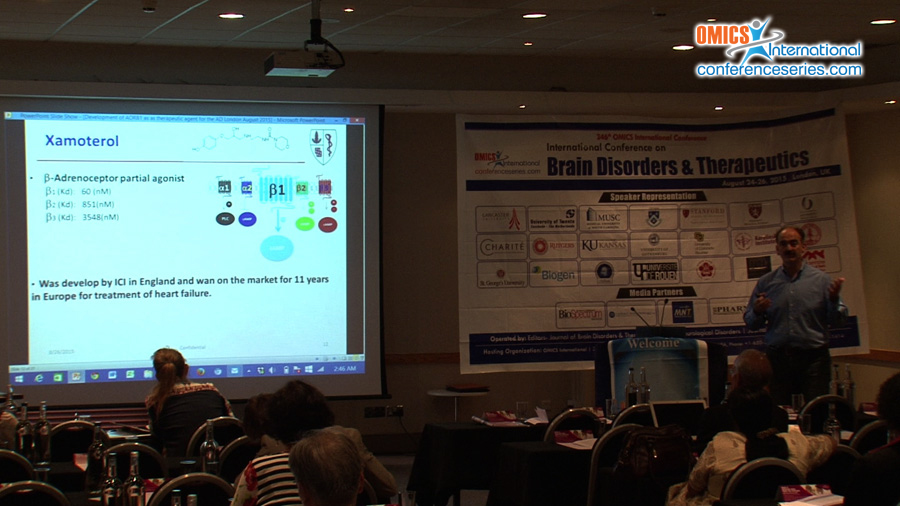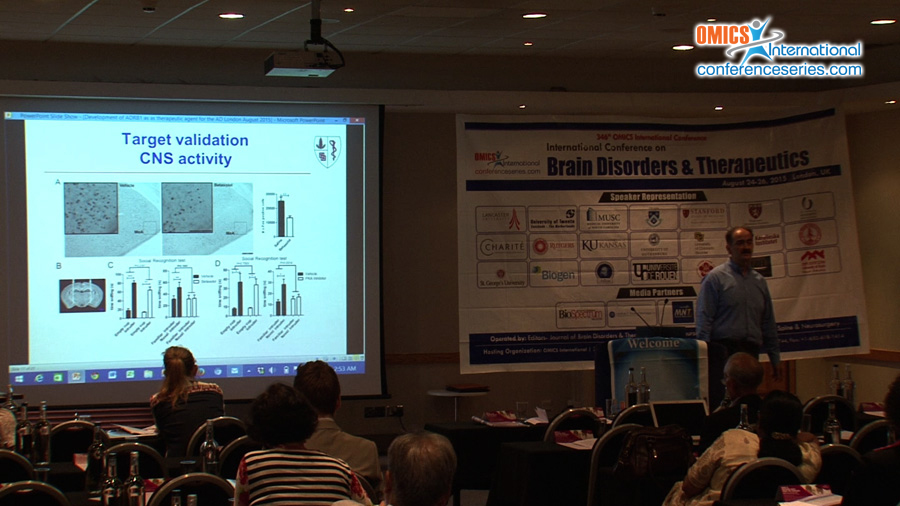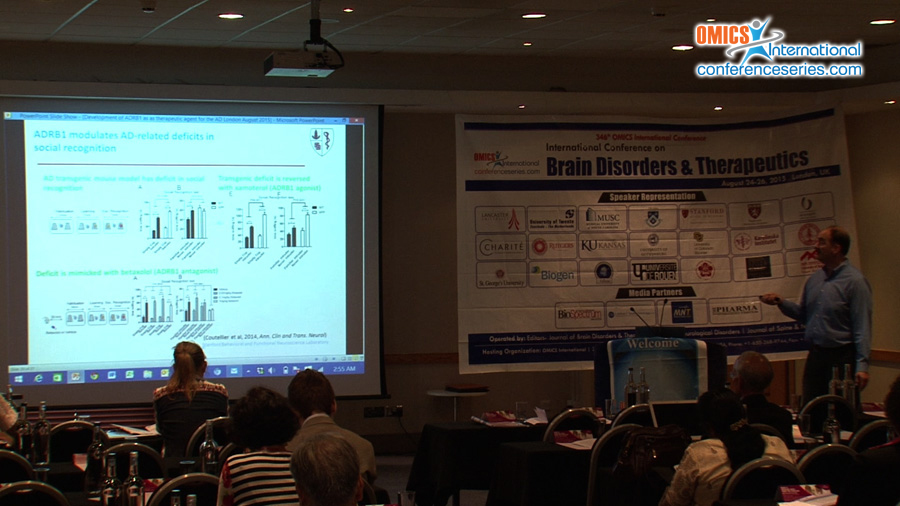
Mehrdad Shamloo
Stanford University, USA
Title: Targeting ß1-Adrenergic receptor as a novel therapeutic approach for treatment of Alzheimer’s disease
Biography
Biography: Mehrdad Shamloo
Abstract
Despite a huge impact on both individuals and public health, Alzheimer\'s disease (AD) remains incurable without an effective, disease-modifying therapy. The lack of effective therapy in AD is attributable to the complex array of factors that are involved in its development and progression. β1-adrenergic receptor (β1-ADR) is promising neuropharmacological target for the treatment of AD. Dysfunction of β1-ADR and its downstream signaling cascade are strongly implicated in cognitive symptoms of AD. Besides its involvement in cognitive symptoms, deficiency of the endogenous ligand for β1-ADR, noradrenaline, is highly correlated with several pathological features of AD including tissue load of amyloid plaques and neurofibrillary tangles. The involvement of β1-ADR in multiple key aspects of AD is a unique and therapeutically attractive feature that could enable a comprehensive strategy toward the treatment and management of the disease. Importantly, recent studies from our laboratory have shown that stimulation of β1-ADR is a promising therapeutic strategy for AD. In two independent preclinical models of AD, we have shown that stimulation of β1-ADR with the partial agonist, xamoterol, restores the cognitive deficits associated with the disease. Moreover, the β1-ADR agonist xamoterol increases the microglia phagocytic activity as evident by increase in CD68 and reduces soluble form of amyloid beta peptide (AB1-40). These data suggest that pharmacological modulation of β1-ADR could provide a novel therapeutic strategy to provide comprehensive therapeutic benefit for AD by simultaneously addressing cognitive symptoms and underlying neuropathology.





